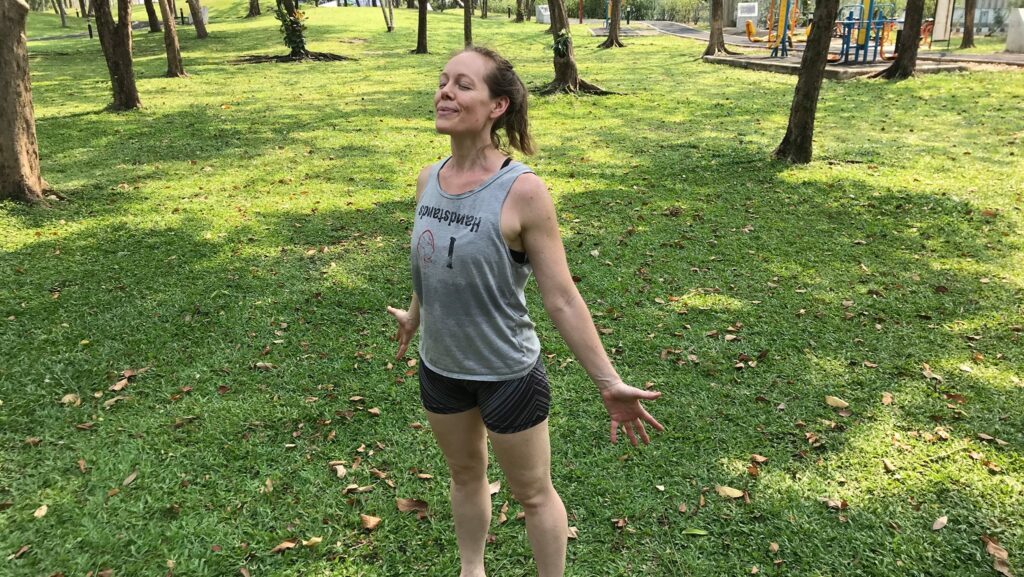Chronic stress is a killer. It seems that more and more medical research is connecting stress to a large spectrum of mental and physical disorders. An article from the Mayo Clinic summarizes it well by saying “Chronic stress can wreak havoc on your mind and body.” Stress can also cause you to biologically age faster by altering the way your body responds to the passage of time. While eliminating stress entirely from our lives is neither possible nor desirable (a certain amount of stress is necessary to keep us alive), learning how to manage stress is one of the most important things to do if you want to live a long and happy life. Below are eleven, time-tested ways to dramatically reduce the negative effect stress has on your life. Start using these ideas now to minimize the damage stress on your body and mind.
*I go further into depth about this in my book, War of Self: the 7 Weapons of Self-Mastery. Here’s a summation.
1. Redefine stress
In and of itself, stress is not a bad thing. It is our response to stress that’s important to consider. Ideally, stress is a transformative force. Rather than wear us out, stress can make us stronger. Stress is a messenger that arises from challenging events in our lives. It is the stress of such challenges that motivates us to adapt to dynamic (and often tragic) circumstances. If your body has the time and energy to recover from stressful events, it will adapt and your health will remain balanced. Some of my greatest personal accomplishments have followed peak times of stress. However, if stressful situations accumulate and your body doesn’t find a way to adjust, you will slip into a chronically stressed state. Chronic stress is a maladaptation and something you want to avoid at all costs.
2. Be open to change
Change is a universal constant and thus a key aspect of anti-aging. A big difference between old people and young people is the malleability of their organic tissues. Functional age becomes apparent when old dysfunctional cells refuse to die off and be replaced by fresh ones. Ironically, by letting our outworn parts die, we live longer and better. Because the separation of mind and body is an illusion, the concept of youthful malleability can also be applied to the way we think. Who is more likely to adapt to change, a young person or an old person? In the psychological sense, the old “cells” are our mental models, our limited ideologies, and our self-deprecating thoughts that, despite their stubborn years-long sabotaging effect on our health, refuse to die. In order to live longer and happier, we must learn how to let the structures that are holding us back die. Clear out the trash to make room for the new. You will be reclaiming your youth in the process.
3. One breath
The next time you feel stressed, pay attention to your breath. Does your breath become shallow or even stop momentarily? This is caused by a tightening of the muscles that control your breathing and is triggered by the “fight or flight” response. Ironically, when your life seems out of control, you should deepen your breathing rhythm, not restrict it. Remembering to breathe deeply during stressful times can make things easier on your heart by regulating blood pressure. Breathing deeply also brings more oxygen to your brain. This allows you to remain focused on the rapid decision-making necessary for troubling times. The next time you feel stressed stop, take one deep breath (and perhaps many more), it will put you into a more productive mental state for finding the root cause of problems rather than continuously settling for quick fixes like sugar, drugs, becoming enraged, or engaging in abusive self-talk.
4. Stop believing in age
Just because everyone you’ve ever heard of eventually succumbs to the aging process doesn’t mean you shouldn’t try to slow the beast down. Stop making excuses based on the growing number of birthdays you’ve had. Instead, treat age as a disease (it probably is) and design a lifestyle that combats it.
5. Invest in Nutrition
This is a huge subject so I’ll quickly explain what I do on a typical day. I wake up and drink 1-2 glasses of water. For “breakfast” I blend coffee with grass-fed butter, MCT-8 oil, plus a sprinkle of cinnamon and nutmeg. I do this as a form of ketogenic intermittent fasting. On most 24 hour cycles, I’ve stopped eating carbohydrates by 8:30 pm the night before and don’t eat anything except the blended coffee until lunch, giving me a 16+ window of practically zero carbohydrates per day. I do this 5-7 days a week. I’ve been doing this kind of “fasting” consistently for about 5 years. Most of my energy now comes from ketosis which has stabilized my blood-sugar nicely. My meals are made primarily of quality vegetables and meat. I eat nuts and seeds and a minimal amount of grains, fruit, and sugars. I stay hydrated with lots of water and some herbal tea in the evenings. As a treat, I often have a couple of pieces of dark chocolate and a glass of red wine. The proper diet for you may be different. It’s important to learn as much as you can about nutrition and test the foods you eat based on how they make you feel. Just make sure that you’re investing in food that gives you the nutrients and energy you need to face the day with passion.
6. Sleep Well
This is one of my biggest challenges. So much to do and so little time! I’ve always been most inspired at night so because the rest of the world gets up early, it’s usually difficult for me to get enough sleep. For the sleep I do get, I strive for as high a quality as possible. When necessary, I use earplugs, an eye mask, blackout curtains, and a sleep app on my phone. When my sleep quality is poor, I adjust my expectations for the day respectively.
7. Proper exercise
I am constantly trying to get stronger, more flexible, and agile. I still like doing the kinds of physical movements I was doing 20-30 years ago but because my recovery is slower now, a majority of my physical training volume emphasizes mobility, active stretching, joint strengthening, and soft tissue recovery. I also cycle in a variety of movement-based exercises that include 2-4 “heavy” days a week focusing on the weakest links of my kinetic chain (aka “the problem areas”). I space out the training sessions every other day or at least rotate the areas that I’ve challenged. On “lighter” days, I still move stiff or sore joints as much as possible by performing light joint mobilizing exercises throughout the day. On days when I’m just not feeling the workout, I try not to do beat myself up about it and take a rest day. For recovery, I take Epsom salt baths, take saunas, get massages, or visit functional medicine practitioners when possible.
8. Express gratitude
It’s important to be grateful for the things in life that we enjoy. I spend time each day (usually before my evening meal or before going to sleep at night) being grateful for all the things and people I love in my life. By acknowledging what I appreciate in my life every day, I feel happier even during difficult times.
9. Design a bright future
If you don’t have anything to look forward too, why are you alive? Invite vitality into your day by learning to enjoy the process of working through your problems. By doing so, you will be creating a better future for yourself and for the world. The events of the past have carried you to today. If you don’t feel happy with your situation, do something, however small right now to start changing it. Big dreams followed by consistent actions are the building blocks of your tomorrow.
10. Communicate your intentions
When you want to make big changes in your life, it’s very important to communicate your intentions to your family and friends. They may not always like your idea, but it’s better to get your ideas out there because you deserve to be happy. If you also take the time to sincerely listen and respond to the needs and wants of loved ones, it’s generally easier for them to accept yours.
11. Stop thinking about it. Take action now
Effective habits make doing the right thing easier. By gradually replacing negative behaviors with positive ones, you will become better at handling stress. This takes a lot of work but it’s worth it. So, after you define and prioritize what is most important (a sound mind and body should be high on everyone’s list), get to work making sure nothing else stands in our way.
Conclusion
So there you have it. Eleven ways you can protect yourself from stress-related disease and possibly slow down your aging process.
- Redefine stress
- Be open to change
- One breath
- Stop believing in age
- Invest in nutrition
- Sleep well
- Proper exercise
- Express gratitude
- Design a bright future
- Communicate your intentions
- Stop thiking about it. Take action now
I hope these ideas help you. If you’re looking for a clear and concise way to help balance all of these elements, check out The Agile Life Plan. It was made specifically for this reason. Do me a favor, let me know if you already practice some of these strategies in the comments below. I’d like to know what’s working for other people. While you’re at it, let me know which of the tips above you’d like to start practicing moving forward.




